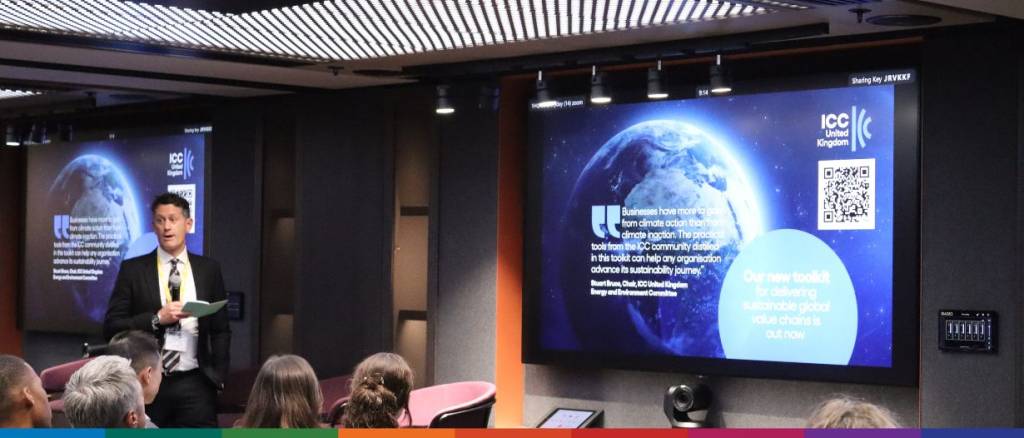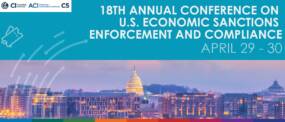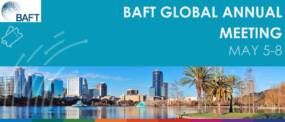Today, the International Chamber of Commerce (ICC) United Kingdom launched a Sustainability Toolkit, designed to guide businesses in embedding sustainable practices within their global value chains.
As the international trade world struggles to address climate change and its implications, this report aims to provide companies with a toolkit to balance economic prosperity with ecological responsibility.
The toolkit, “Make Climate and Environment Action Everyone’s Business,” serves as a guide for businesses to integrate sustainability into their operations by looking at topics like biodiversity, circular economy, net zero, climate contract clauses, supply chain digitalisation, and sustainability reporting frameworks.
Biodiversity and the Nature Positive Business Pledge
The toolkit emphasises the importance of biodiversity, highlighting the interconnectedness of all life forms and their roles in maintaining healthy ecosystems and economies. It introduces the Nature Positive Business Pledge, which encourages businesses to understand and reverse their impacts on nature across their value chains.
This pledge is a call to action for businesses to align their strategies with biodiversity protection and sustainable resource management.

Circular economy and net zero initiatives
The circular economy is another focal point of the toolkit, urging businesses to minimise waste and make the most of resources. This approach is exemplified by companies like BT Group, which is shifting towards circular networks as part of its sustainability drive.
Net zero targets are also a significant aspect of the toolkit, with case studies such as the Soil Conservation ‘carbon-smart’ approach in agriculture, demonstrating how businesses can reduce their carbon footprint and contribute to the global effort to mitigate climate change.
Supply chain digitalisation and reporting frameworks
Supply chain digitalisation is presented as a means to enhance traceability and accountability in production processes. The toolkit includes examples like the global traceability for Canadian aluminium, showing how digital solutions can support sustainability goals.
Furthermore, the toolkit provides insights into sustainability reporting frameworks, such as the Taskforce for Nature-related Financial Disclosures (TNFD) and the Taskforce for Climate-related Financial Disclosures (TCFD). These frameworks help businesses measure and communicate their environmental impact, fostering transparency and informed decision-making.
SME Climate Hub
Understanding climate regulations is difficult for everyone, but for SMEs who often struggle with financial and time constraints, it can be even more of a burden.
This climate toolkit aims to support SMEs in their endeavour to halve emissions by 2030 and to innovate climate solutions that propel society towards net zero with a few steps.
Make the climate commitment: The SME Climate Hub invites SMEs to join the United Nations’ Race to Zero campaign, urging them to make a formal commitment to climate action.
Measure and report emissions: Businesses are encouraged to measure their emissions to understand their baseline and largest sources of emissions. After the first 18 months of making the SME Climate Commitment, companies are required to report on their progress.
Develop a business strategy: With a clear understanding of their emissions, SMEs can develop targeted strategies to reduce their carbon footprint effectively.
Reduce own emissions: The toolkit guides businesses to reduce emissions directly under their control, such as office energy use and business travel.
Reduce value chain emissions: It also addresses the importance of managing emissions throughout the supply chain, which often represent a larger share of a company’s total emissions.
Contribute to climate action in society: By sharing your commitment and your own stories, you can impact your communities’ climate journey. Addressing climate change requires collective action, but there are tangible steps that the industry can take to move in the right direction.
Visit https://iccwbo.uk/ to get more information on the sustainability toolkit.
 Australia
Australia Hong Kong
Hong Kong Japan
Japan Singapore
Singapore United Arab Emirates
United Arab Emirates United States
United States France
France Germany
Germany Ireland
Ireland Netherlands
Netherlands United Kingdom
United Kingdom










Comments are closed.